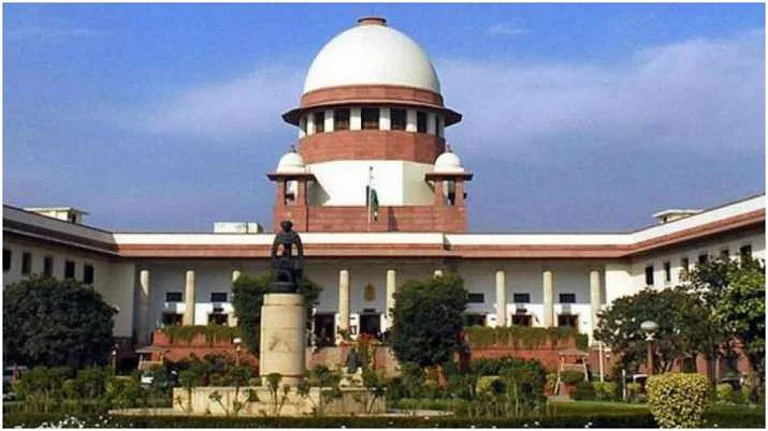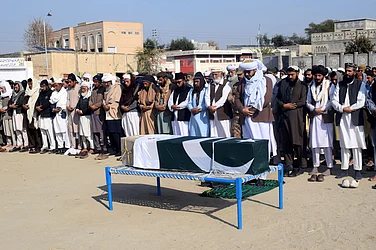Tajikistan is making headlines as the Muslim-majority country's parliament passes a law banning the hijab, deeming it "alien" to its culture. After years of unofficial curbs on religious clothing, the law was passed by the lower house of parliament, the Majlisi Namoyandagon, on May 8.
The upper house, the Majlisi Milli, approved the bill on June 19, after Eid celebrations.
The decision was seen as surprising, as the central Asian country of approximately 10 million people, 98 percent identify as Muslim, according to research by the Pew Research Group.
Tajikistan Hijab Ban | What Does The New Law Say?
The amended law, "On Regulation of Holidays and Ceremonies", prohibits the "import, sale, promotion, and wearing of clothing deemed foreign to the national culture". This includes:
- A ban on the hijab, the head covering worn by Muslim women, and other garments associated with Islam
- A ban on Eidi, the custom of gifting money to children during Eid and Navroz
- Restrictions on festivities around Eid-al-Fitr and Eid-al-Adha
Penalties For Non-Compliance:
- Individuals wearing hijabs or prohibited religious attire face fines up to 7,920 somonis (approximately $700)
- Companies permitting employees to wear banned garments face penalties of 39,500 somonis ($3,500)
- Government officials face higher fines ranging from 54,000 to 57,600 somonis ($4,800 to $5,100)
Why Did Tajikistan Ban Hijab?
The hijab ban is part of a series of measures taken by President Emomali Rahmon's government to promote a specific national identity and limit public displays of religious affiliation.
President Rahmon has been in office since 1994, making him one of the longest-serving leaders in the region. His political career has been marked by a stance against religious political parties, and he has historically been aligned with secularist ideologies.
During his rule, Rahmon has sought to consolidate power and shape the country's cultural identity. His government's efforts to promote what he has deems “Tajiki” culture and minimise the visibility of public religiosity, are seen as key aspects of this strategy.
Tajikistan Hijab Ban | Similar Rules Introduced Earlier
Tajikistan has a history of regulating religious attire, with a 2007 law governing holidays and ceremonies effectively banning Islamic clothing and Western-style miniskirts. This led to a de facto prohibition on the hijab in educational institutions and eventually all public spaces.
President Rahmon's campaign against the hijab gained momentum in 2015, when he publicly associated it with "poor education". He reiterated his stance in 2024, saying, “Xenophobia in clothing… Wearing foreign clothes with fake names and hijab, is another pressing issue for our society.”
While there are no legal restrictions on beards in Tajikistan, multiple reports state that law enforcement has forcibly shaved men sporting bushy beards, seen as a potential sign of someone's extremist religious views.
A 2017 statement by the Tajikistan Religious Affairs Committee said that 1,938 mosques were closed down in just one year, and places of worship were converted into places such as tea shops and medical centres.
Tajikistan Hijab Ban | Criticism
The move has angered many Muslim advocacy groups as well as citizens, who argue that people should be free to choose what clothes they want to wear. America's largest Muslim civil rights and advocacy organisation, The Council on American-Islamic Relations (CAIR), has condemned Tajikistan's new legislation, calling it a violation of religious freedom.
"Banning the hijab is a violation of religious freedom and such bans on religious attire should have no place in any nation that respects the rights of its people," stated CAIR's Research and Advocacy Director, Corey Saylor.
"We condemn this draconian, repressive law and urge the Tajik government to reverse this decision" the statement said.
Other Muslim Countries That Banned Hijab
Tajikistan is not the only Muslim-majority country to restrict the wearing of hijabs. Last October, Kazakhstan considered a similar ban on Islamic headscarves in public spaces.
Other countries, including Kosovo, Azerbaijan, and Kyrgyzstan, have already implemented bans on the burqa and hijab in public schools, universities, or for government officials. These countries have cited public security concerns as the reason for such legislation.
However, human rights advocates argue that such bans violate international human rights law, including the International Covenant on Civil and Political Rights and the European Convention on Human Rights, which protect individuals' freedom of religion and expression.


























